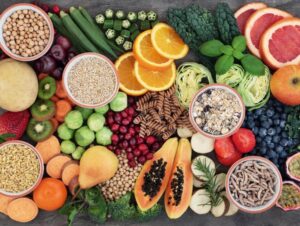 Fiber, a crucial component of a balanced diet, plays a vital role in promoting overall health, particularly for seniors. Understanding the importance of fiber and incorporating it into one’s diet can contribute to improved digestive health and overall well-being.
Fiber, a crucial component of a balanced diet, plays a vital role in promoting overall health, particularly for seniors. Understanding the importance of fiber and incorporating it into one’s diet can contribute to improved digestive health and overall well-being.
Why Do Seniors Need More Fiber?
As individuals age, digestive health becomes increasingly important. Fiber plays a key role in maintaining regular bowel movements, preventing constipation, and supporting a healthy digestive system. Additionally, a high-fiber diet can help manage weight, control blood sugar levels, and lower the risk of certain chronic conditions, such as heart disease and diabetes.
How to Increase Your Fiber Intake
Seniors can enhance their fiber intake by incorporating a variety of whole foods into their diet. Fruits, vegetables, whole grains, legumes, and nuts are excellent sources of fiber. Gradually increasing fiber consumption and staying well-hydrated can aid in the digestive process.
What Foods Are Rich in Fiber?
Fruits and Vegetables: Berries, apples, pears, broccoli, carrots, and leafy greens are rich in fiber.
Whole Grains: Choose whole grains like brown rice, quinoa, oats, and whole wheat for higher fiber content.
Legumes: Beans, lentils, and chickpeas are excellent sources of fiber and protein.
Nuts and Seeds: Almonds, chia seeds, and flaxseeds are fiber-packed snacks.
What About Fiber Supplements?
While whole foods should be the primary source of fiber, some seniors may find it challenging to meet their dietary fiber needs through food alone. In such cases, fiber supplements can be considered under the guidance of a healthcare professional. However, it’s essential to prioritize whole foods for their additional nutritional benefits.
Ensuring an adequate intake of fiber is a simple yet powerful way for seniors to support their overall health. By incorporating fiber-rich foods into their daily meals, seniors can promote digestive wellness, manage chronic conditions, and contribute to a more vibrant and active lifestyle.
